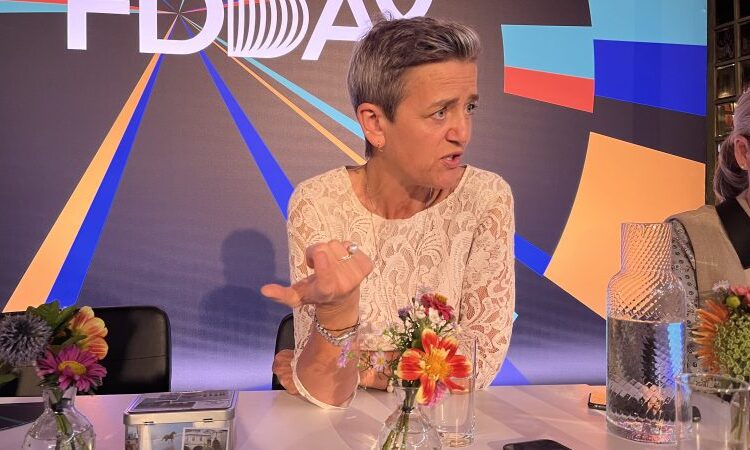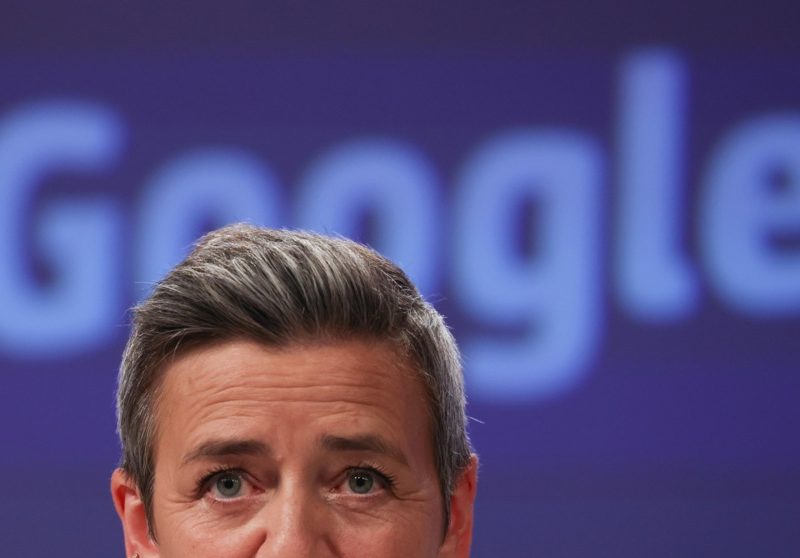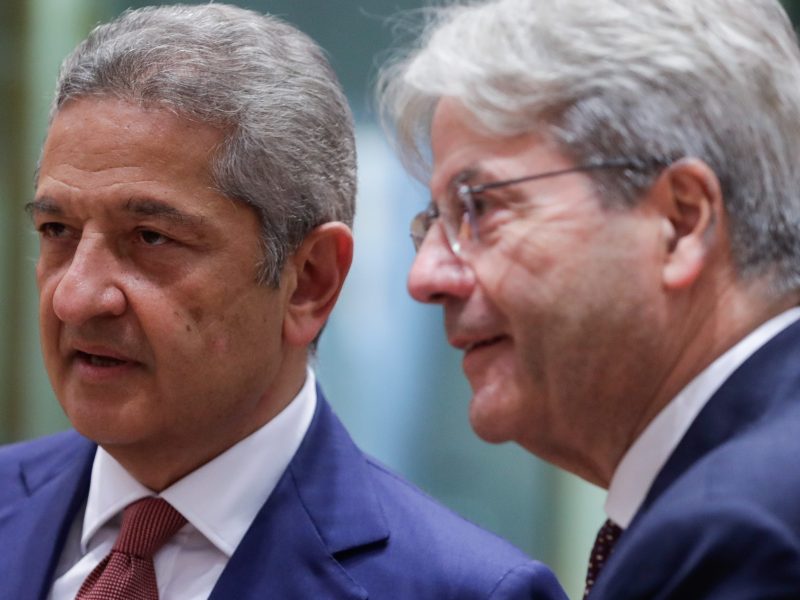
Margrethe Vestager, a top candidate to lead the European Investment Bank (EIB), came to Paris on Wednesday (20 September) to speak at a flagship start-up conference – and pitch her candidacy for the EIB job with Economy Minister Bruno Le Maire.
The EIB race is entering the home stretch: The 27 EU finance ministers will meet in October and most likely agree on one final candidate – behind closed doors – to replace Werner Hoyer, in the post for the past 12 years.
Vestager’s short Paris stopover is no surprise. France is the EIB’s largest capital lender, alongside Germany and Italy, at an equal €46.7 billion, and any candidate for the top job would need Le Maire’s support.
In a discussion with a few journalists, including Euractiv, the former Danish EU commissioner confirmed she had held “political conversations” during her Paris stint, including with Le Maire.
There was no meeting with President Emmanuel Macron, however: “I’m not trying to compete with King Charles”. The British monarch is currently on his first visit to France.
Incidentally, Vestager had a long-lasting feud with France while she was the EU competition chief: From the aborted Alstom-Siemens merger in 2019 to the revocation of US expert Fiona Scott Martin as the EU’s chief competition economist at the behest of Macron this summer, the French and the Dane have not been seeing eye to eye.
Meanwhile, the shadow of Spanish Vice-President and Finance Minister Nadia Calviño, the other top EIB candidate, is looming in the background: She is rumoured to be both Germany and France’s favourite pick so far.
Could Vestager feel the tension while meeting with Le Maire: “it was not my impression [that there were tensions],” she said, adding that their discussion was “good and open”.
Internal reform for speedier investments
The EIB, once a technocratic institution that easily fell off the EU bubble’s radar, is returning to the spotlight as climate financing becomes more imperative than ever to meet the Green Deal’s net-zero goals.
Even more so as the Commission has so far ruled out a new round of EU debt, although the €850-billion next Generation EU (NGEU), secured over the 2020 pandemic through common debt, comes to an end in 2026.
Relying on private capital to support green investments and the EU industry’s decarbonisation is more crucial than ever – and the EIB’s ‘AAA’ credit rating comes in handy.
“I’m asking for a mandate for change,” Vestager said, calling for “internal reform [of the bank] to gain speed” when it comes to digitalisation, and the rolling out of AI for better data usage and audits, with one clear purpose in mind: pouring cash faster into European companies.
In her view, the EU is failing at speed in comparison to American and Saudi Arabian counterparts, whose capital markets are much more advanced than the EU’s when it comes to scale-ups and bringing startups to the “industrial level”.
“What I would want to do is [create] another compartment in the bank that is willing, with private capital, to take the risk of investing in scale-up companies […]. There is a hole in the European capital markets where you cannot find financing for such situations,” she said.
Is the EIB stepping in to compensate for the lack of a full-fledged EU capital markets union? “You can’t say that,” Vestager said but added: “Until we have a functioning capital markets union, there are needs that must be met. Otherwise, we are holding back businesses”.
And her willingness to speed things up have gotten her “positive responses” from EU finance ministers, so she says.
Optimistic on defence, mining
With a month to go before the final EIB decision, one of the member states’ top issues is defence and whether the EIB, under Vestager’s leadership, could extend dual-use investments – technology funding for both civil and military use – if not even opening up to military-only.
Many have voiced concerns this could make the EIB lose its ‘AAA’ rating and Vestager sought to allay such fears. EIB investors “are careful not to invest in the hard end of the defence industry,” she said.
This is not to say defence should drop off the map entirely, however: “Some years ago, it was military innovation that would have been siphoned into civilian use. Now, it is more and more the other way: Defence is becoming a hybrid thing”.
If this new reality can reassure investors, then “that’s a good balance,” she explained.
So far, the EIB has also stayed away from the mining industry in the past but a new Critical Raw Materials Act (CRMA), presented last March by the Commission to help reduce the EU’s mining dependencies on China and the African continent, could be a game changer. Could things change under her leadership?
Vestager said the CRMA creates “a new approach to mining where [its] value added is more equally shared, so that trust can be built between resource-intensive countries and countries that want to buy these resources”. This includes working conditions and environmental effects where the materials are mined.
If the right balance is struck, then “you can make good mining investments”.
Besides Vestager and Calviño, three other candidates for the top job are the Italian Finance Minister Daniele Franco, and two current EIB vice-presidents, Poland’s Teresa Czerwinska and Thomas Ostros from Sweden.
[Edited by Zoran Radosavljevic]








